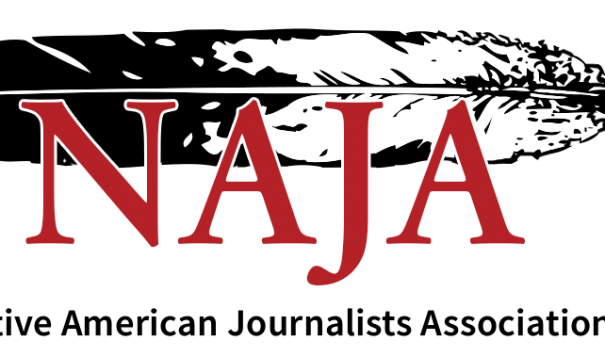NAJA asserts that repeal of free press protections violates declaration of Indigenous rights

Muscogee (Creek) National Council Rep. David Hill recently introduced legislation to re-establish free press protections for Mvskoke Media. The bill failed by a vote of 9-6, one short of the required two-thirds majority, with Reps. Pete Beaver, Joyce Deere, Johnnie Greene, James Jennings, Darrell Proctor and Adam Jones III voting against reinstatement. The Native American Journalists Association (NAJA) remains alarmed that Muscogee (Creek) reporters and citizens continue to face undue government censorship.
The Council’s move to revoke press freedom places Mvskoke Media, a multimedia outlet funded by the tribe, under the control of the Department of Commerce and disbands the editorial board – the barrier between Mvskoke reporters and government officials. Despite claims from Principal Chief James Floyd and National Council Speaker Lucian Tiger III that the outlet would not be changed or restricted, reporters have already been forced to obtain prior approval for content.
In early 2016, the Muscogee (Creek) Nation began an ambitious project to translate the United Nations’ Declaration on the Rights of Indigenous People (UNDRIP). Adopted nearly 10 years before by the UN General Assembly, UNDRIP codifies the “minimum standards for the survival, dignity and well-being” of Indigenous people around the world. Translating that document represents a bold vision by the Muscogee (Creek) Nation: they would be, for all intents and purposes, a sovereign, independent nation with more in common with the international community than their neighbor, the United States.
Muscogee (Creek) Nation, the fourth largest tribe in what is currently the United States, boasts a population of more than 86,000 citizens both within its borders and abroad. Once described as a leader in using the language of human rights to advocate and protect cultural freedoms, the Muscogee (Creek) Nation’s ambition to codify international law through the use of the Mvskoke language matched their adoption of free press laws – one of only five tribal nations of 577 with specific protections for an independent press.
The Muscogee (Creek) National council’s failure to re-establish free press protections at the expense of their citizens is in violation of the same international laws the nation has aspired to adopt, translate and champion. In the Muscogee (Creek) Nation, international ambitions may drive tribal citizens in their ongoing journey, but human rights violations will define just how far the nation can actually go.
“Everyone has the right to freedom of opinion and expression,” reads the Universal Declaration of Human Rights. “This right includes freedom to hold opinions without interference and to seek, receive and impart information and ideas through any media and regardless of frontiers.”
As nations around the world move to provide protections for news, information and freedom of opinion, the Muscogee (Creek) Nation has instead chosen an American path: one that more closely resembles the actions and rhetoric of U.S. President Donald Trump who has restricted press access and labeled journalists as enemies of the people.
In the Mvskoke language, the word for reporter is TVLEMECV and is comprised of the noun TVLEME, or “public area,” and the verb TVLEMECETV, “to publicize.” A person who makes things public is a TVLEMECV. It is the position of NAJA that the tradition of making things public, the role of a reporter, is a cultural expression, a sacred responsibility, an Indigenous right, and foundational to sovereignty and self-determination.
It is also the position of NAJA that Principal Chief Floyd and members of the Muscogee (Creek) National Council are in violation of UNDRIP which states in Article 1: “Indigenous peoples have the right to the full enjoyment, as a collective or as individuals, of all human rights and fundamental freedoms as recognized in the Charter of the United Nations, the Universal Declaration of Human Rights and international human rights law.” This includes the right to freedom of opinion and expression.
This right has been enshrined in both the English and Mvskoke languages, and Chief Floyd, Speaker Tiger and council members who voted to repeal press freedoms should examine their consciences for voting to restrict the rights of Indigenous people and engaging in politics that are colonial in nature.
